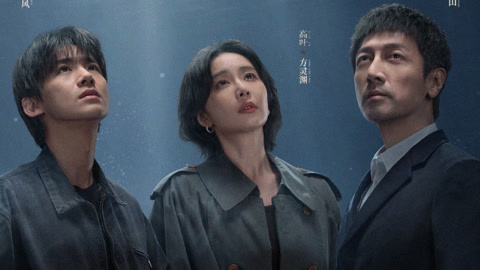Episode Summary
At his hearing, Duan Hongshan's prosecutor, Fang Lingyuan, presents evidence suggesting a third party tampered with the victim's phone. The proceedings reveal Zhou Delong's premeditated plan to harm Duan, stemming from an old grudge. Despite this, the hearing panel doubts Duan's self-defense claim due to a lack of evidence and inconsistencies in his account, suspecting it may be a cover for intentional murder. The hearing concludes with Duan passionately challenging the panel, questioning why established legal precedents for self-defense are being ignored in his case.
Spoiler Alert
The episode centers on Duan Hongshan's critical hearing. As prosecutor Fang Lingyuan escorts him, Duan's daughter, Yingying, is in an interview, articulating her profound understanding of a prosecutor's duty. She explains that while most people focus on the outcome, a prosecutor delves into the reasons behind it, expressing unwavering faith in her father's innocence.
Just before the hearing, a moment of inspiration strikes Fang Lingyuan. She quickly gives a phone number to her assistant, Xiao Zhou, and sends him on an urgent task.
In the hearing, Fang Lingyuan's strategy unfolds. She has Duan Hongshan confirm the model of Zhou Delong's mobile phone, noting it's a new device. She argues that while Duan's testimony lacks solid evidence, a key inconsistency lies with the phone: its discovery location. Fang presents a diagram showing an eight-meter gap between the scene of the struggle and where the phone was salvaged from the water. This is highly unusual. The fishery owner testifies that new nets had been installed just a week before the incident, making it impossible for the phone to have drifted so far. Fang concludes that someone must have deliberately thrown the phone outside the netted area. This person could not have been Duan Hongshan, as the phone is the most direct and effective piece of evidence proving his claim of justifiable defense.
The hearing then delves into the history between the men. Fang Lingyuan brings up a past case where a flawed legal interpretation caused Zhou Delong to redirect his hatred towards Mei Zheng. Duan Hongshan recalls finding a notice on the school's bulletin board cursing Mei Zheng. To protect her and to locate Zhou Delong, Duan gave Mei Zheng his phone number, asking her to call if she had any news. However, Mei Zheng informed him that she was dropping out of school and wouldn't be around anymore.
Fang Lingyuan reveals that Zhou Delong had been investigating Duan Hongshan and was even living in the adjacent apartment, proving his actions were premeditated. When asked, Duan recalls seeing a man—whom he now suspects was Zhou—standing in the rain and staring at his house the day before he was kidnapped. This testimony convinces the hearing officers that Zhou Delong likely had murderous intent. Duan explains he went to meet his attacker after receiving a call he believed was from Mei Zheng regarding the Jiang Ting case, for which he was the prosecutor.
However, the panel questions Duan's actions after the stabbing. He drove Zhou Delong's car from the scene to the nearest police station to report the crime immediately, aiming to preserve evidence. Fang Lingyuan points out a mileage discrepancy in the car's travel log. Duan explains this was due to poor visibility and difficult road conditions caused by heavy rain.
Duan recounts the life-or-death struggle. He insists he tried to escape but was trapped by the fishery's layout. He only grabbed the knife to fend off Zhou Delong, who, despite being injured, continued to attack him relentlessly. He argues he had no choice but to fight back to save his own life. The hearing officers remain unconvinced, speculating that Duan might have intentionally killed Zhou and fabricated the self-defense narrative. They warn him that without concrete evidence, he cannot be cleared, and the investigation will proceed relentlessly.
The panel questions how Duan managed to kill Zhou with a single, fatal stab. Duan references a landmark case from five years prior, arguing that in an extreme life-threatening situation, a person cannot be expected to perfectly measure the force of their self-defense while also ensuring their own survival. When the panel dismisses this as sophistry, Duan confronts them directly. He questions why numerous similar cases, all of which were deemed justifiable defense and set legal precedent, are suddenly not applicable to his situation.

